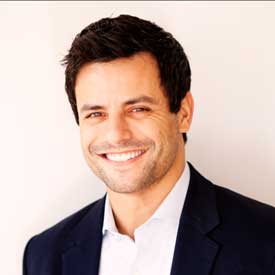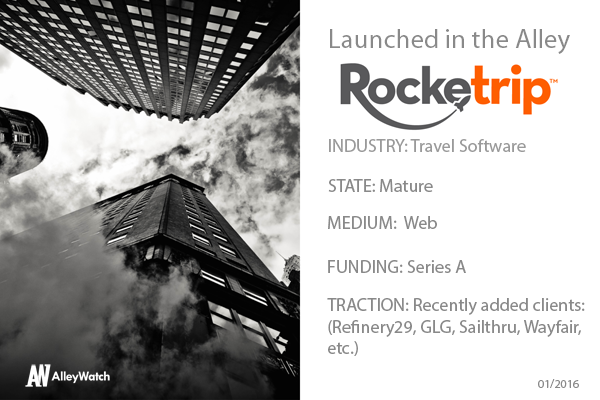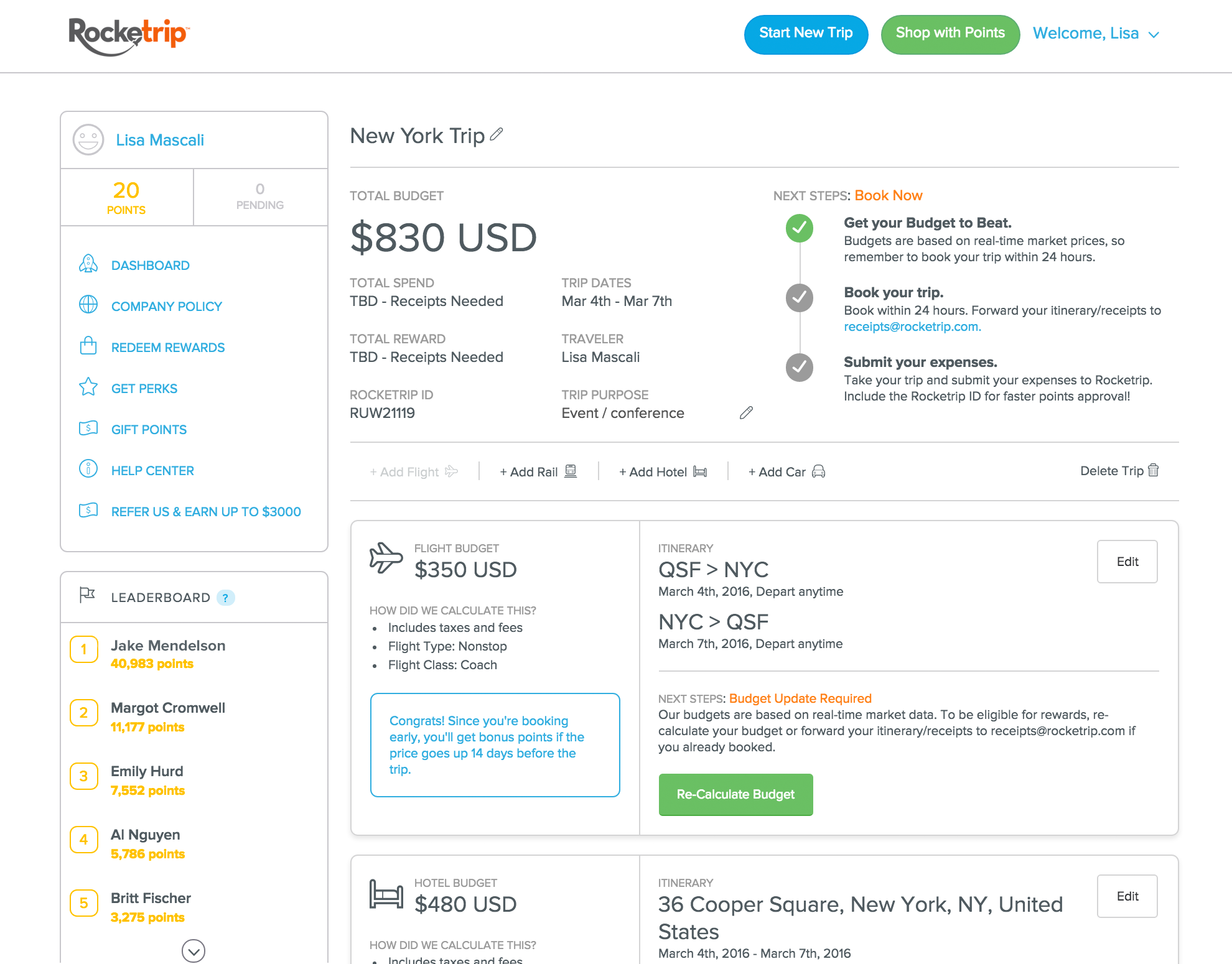With the amount of money companies spend on business trips, a little frugality on the part of the individual flyers goes a long way. But when each flyer rationalizes that their company is already spending millions on company travel, ”what does a $400 upgrade matter?” The way to combat this lies is Rocketrip. Simply put, they give you a quote for how much a trip normally would cost and whatever you don’t spend you get half back. The gamifed travel platform is a no-brainer, as you can only gain by using it!
AlleyWatch got in touch with founder and CEO Dan Ruch to talk about business travel in the U.S as well as how Rocketrip’s service is making it a lot more fun.
Tell us about the product or service.
Rocketrip cuts a company’s travel expenses by incentivizing employees to spend less on their flights, hotels, and rental cars. Before booking their trips, business travelers get custom budgets based on real-time data, and if they come in under, they keep half the savings. On average Rocketrip reduces a client’s trip cost more than 25%.
How is it different?
Rocketrip takes an employee-focused approach to travel management. Traditionally, companies tried to rein in T&E expenses with restrictive travel policies. More recently there have been some attempts at corporate travel gamification, but none of them have lasted: accurately estimating the cost of a given trip and creating the right incentives to motivate savings turns out to be pretty hard. Rocketrip’s the first solution to combine data-based trip budgets and monetary rewards.
What market are you attacking and how big is it?
Our clients spend at least $2M, and as much as several hundred million on travel each year. In 2016 U.S. companies alone will spend $300 billion on business travel, the majority of it on the type of expenses that Rocketrip helps cut (airfare, rail, rental car, and hotel costs). They’ll also spend several billion dollars on fees to travel management companies.

What is the business model?
Our clients pay an annual subscription fee based on their level of travel spending. All the savings generated by Rocketrip are split between the company and its employees. Rocketrip also operates an ecommerce platform powering the rewards employees cash in for when they save on their trips. Finally, we earn additional revenue from affiliate fees from recommended travel providers.
What inspired the business?
Recognizing the misaligned incentives that arise when the person who’s traveling isn’t the one who’s paying. It’s not that employees try to waste company money, just that normal price considerations go out the window. If you’re allowed to fly business class, you’d be crazy to volunteer to fly coach, or to stay in a Holiday Inn when you’re budgeted for the Four Seasons.
Anyone who’s ever gone on a business trip has probably experienced a version of this.
Google manages its own travel with a program that lets employees use savings from one trip to splurge on another. That was one inspiration we had in mind when thinking of how to make cost control a win-win.
Why are employee expenses well suited for gamification and incentivization?
The value proposition for employees is clear-cut and meaningful: the less you spend, the more you earn. It also helps that most people are used to finding ways to save on their personal travel. Business travelers are open to doing things like choosing the lowest fare flight, using Airbnb, or staying with friends and family, but without incentives they don’t have a reason to be cost-conscious.
What are the milestones that you plan to achieve within six months?
We’ve begun working with several Fortune 500 accounts, and in the next sixth months we’ll be adding more. We’ll also be hiring aggressively in 2016.
What is the one piece of startup advice that you never got?
Besides that finding office space is really hard? The startup community places such a strong emphasis on the disruptive potential of new technology that I think it’s easy to overlook the potential for gradual innovation. We started Rocketrip because it was apparent there were enormous pain points in corporate travel, but as we’ve grown it’s become equally apparent that we can make the biggest impact for our clients by adapting to their existing way of doing things.
If you could be put in touch with anyone in the New York community who would it be and why?
I’d love to meet any CFOs managing a P&L with a travel spend over $2M.
Why did you launch in New York?
New York is the best proving ground for startups. Clients and investors are harder on you here than they are in places like San Francisco. Money isn’t as easy to come by, and companies fail faster. New York has a deep pool of engineering talent and ample venture capital, but just as importantly startups here have to exist outside the tech echo-chamber.
What’s your favorite rooftop bar in NYC to unwind?
My wife and I have a newborn at home, so recently we haven’t been able to go to many bars, rooftop or otherwise. But I seem to remember that Birreria above Eataly was a nice spot to go for food and drinks.





